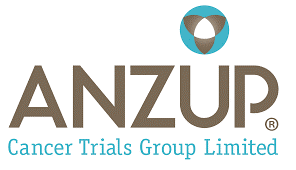Adaptive therapy in metastatic prostate cancer
A Phase II randomised controlled trial of patient-specific adaptive versus continuous Abiraterone or eNZalutamide in metastatic castration-resistant prostate cancer - The ANZadapt study -
Funding
Why this trial
In most patients with metastatic cancer treatment resistance - failure of the tumour to respond to treatment - develops. At the core of treatment resistance lies intra-tumour heterogeneity, or different tumour cells within the same tumour, and the capability of the tumour to change its attributes so it is not affected by the treatment.
The current cancer treatment strategy is based on giving the maximum dosing of a treatment, and the continuation of a treatment until the disease progresses. This might be an unwise strategy because it lets resistant cancer cells live and expand, while it eliminates cells that are sensitive to the treatment and can compete with the resistant cells.
Therefore, the researchers of this trial hypothesise that stopping the treatment before all sensitive cancer cells are eliminated, may allow the remaining treatment-sensitive cancer cells to regrow and out-compete the less fit treatment-resistant cancer cells. This way, treatment failure could be delayed, providing more time for cancer patients. The hypothesis will be tested in this trial by applying a so-called ‘adaptive treatment’ for patients with metastatic prostate cancer.
Why this intervention
To test the hypothesis of adaptive therapy, hormonal treatment with enzalutamide (ENZ) and abiraterone acetate (AA) for metastatic castration-resistant prostate cancer (mCRPC) - prostate cancer that keeps growing even when the amount of testosterone in the body is reduced to extremely low levels - is very appropriate. For several reasons.
Firstly, one can evaluate the response of the tumour cells by measuring PSA (Prostate-specific antigen), which is simple, cheap, and barely invasive.
Secondly, treatment with ENZ and AA is generally well-tolerated and the toxicity of the treatment does not accumulate over time, which offers the opportunity for a long-term adaptive treatment.
Thirdly, for AA, a pilot study showed promising results, and other research may suggest beneficial outcomes in patients in whom ENZ has been used intermittently.
Trial design
This trial is an international, multicentre, open-label randomised phase II clinical trial.
168 men with asymptomatic or mildly symptomatic mCRPC will be included. Patients will be randomly assigned to either the control group or the experimental group. In the control group, patients will receive the standard (continuous) treatment with AA/ENZ until treatment failure.
In the experimental group patients will start with AA/ENZ until achieving a >50% decline of the baseline PSA (the PSA measured before start of the treatment). When this decline is reached, treatment will be paused. Patients’ PSA levels will be monitored every month. AA/ENZ will be restarted when the PSA increases to or above the PSA concentration before the treatment. AA/ENZ treatment will be stopped again after the PSA declines >50% from the baseline. This pause/restart cycle of patient-specific adaptive therapy will be repeated as long as the patient consents and tolerates the treatment. Patients who do not achieve a >50% decline of their baseline PSA concentration after restarting AA/ENZ, will remain on treatment until treatment failure is established.
The primary endpoint of the study is time to treatment failure (TTTF). Secondary endpoints are Time to Pain Progression (TTPP), Radiographic Progression Free Survival (RPFS), Overall Survival, quality of life and health-economic cost consequences.
The trial will run in The Netherlands and in Australia.
Partners
Researchers:
- Dr. Tom van der Hulle
Medical Oncologist
Department of Medical Oncology
Leiden University Medical Center
Albinusdreef 2
2333 ZA Leiden, the Netherlands - Prof Craig Gedye
Senior Staff Specialist, Medical Oncology
Calvary Mater Newcastle
Waratah NSW 2298, Australia
Sponsors:
- Leiden University Medical Center
ANZUP Cancer Trials Group
Our role
Why we support this trial

Expected survival benefit
No major hurdle for clinical implementation
Funding
Questions about participation?

Questions about participation?

References
More info: NCT n°: NCT05393791
Gillies RJ, Verduzco D, Gatenby RA. Evolutionary dynamics of carcinogenesis and why targeted therapy does not work. Nat Rev Cancer. 2012;12(7):487-93. 18.
Gatenby RA, Silva AS, Gillies RJ, Frieden BR. Adaptive therapy. Cancer Res. 2009;69(11):4894-903.
Hansen E, Woods RJ, Read AF. How to Use a Chemotherapeutic Agent When Resistance to It Threatens the Patient. PLoS Biol. 2017;15(2): e2001110.
Ornstein MC, Wood LS, Elson P, Allman KD, Beach J, Martin A, et al. A Phase II Study of Intermittent Sunitinib in Previously Untreated Patients with Metastatic Renal Cell Carcinoma. J Clin Oncol. 2017;35(16):1764-9.
Zhang J, Cunningham JJ, Brown JS, Gatenby RA. Integrating evolutionary dynamics into treatment of metastatic castrate-resistant prostate cancer. Nature communications. 2017;8(1):1816.
Mason NT, Burkett JM, Nelson RS, Pow-Sang JM, Gatenby RA, Kubal T, et al. Budget Impact of Adaptive Abiraterone Therapy for Castration-Resistant Prostate Cancer. American health & drug benefits. 2021;14(1):15-20.
Hussain M, Tangen CM, Berry DL, Higano CS, Crawford ED, Liu G, et al. Intermittent versus continuous androgen deprivation in prostate cancer. The New England journal of medicine. 2013;368(14):1314-25.
Authors: Klara Rombauts (Research Manager), Kristine Beckers (Trial Manager)
Last updated: November 2022

